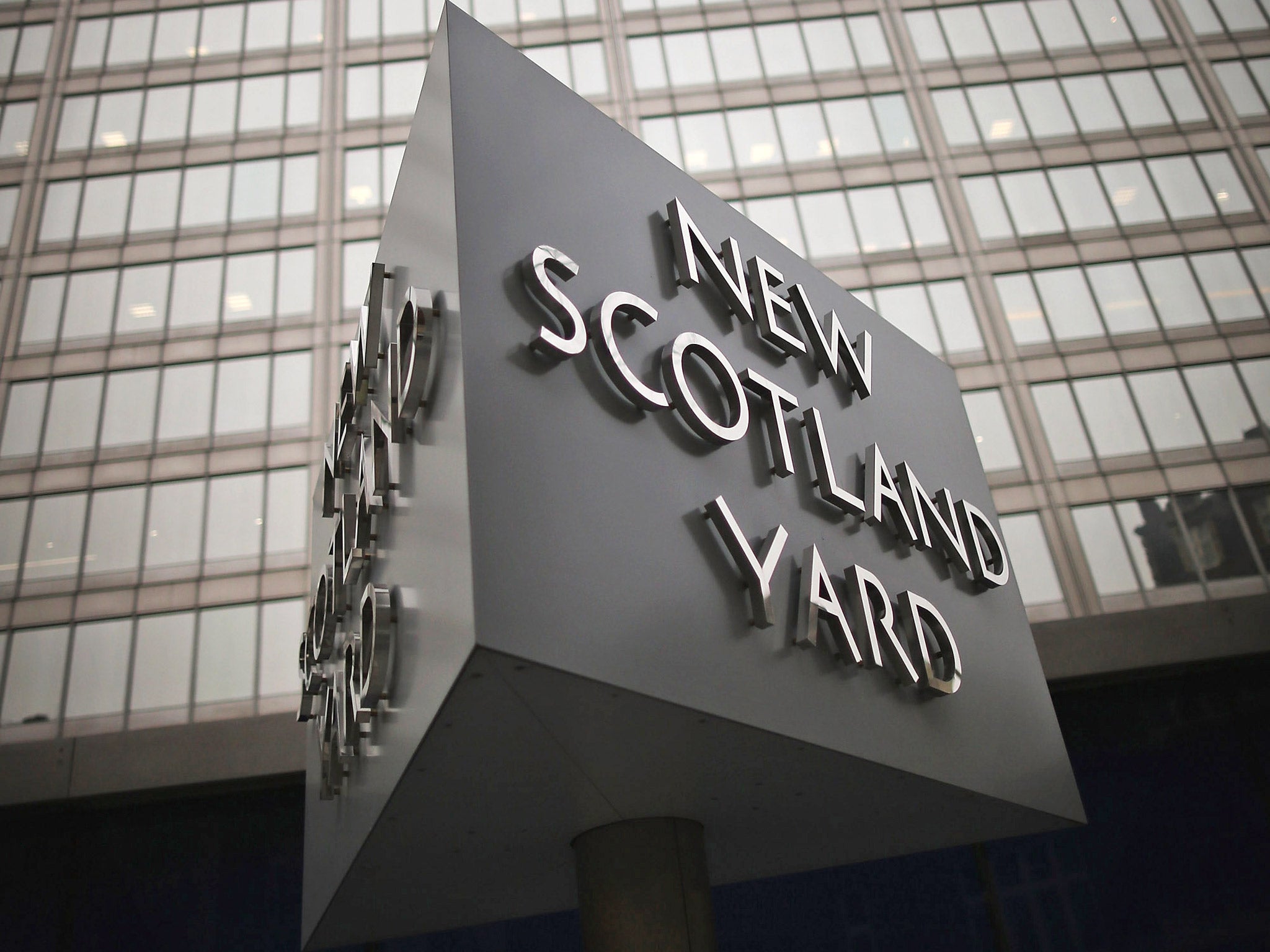Fiddled crime figures lead to under-reporting of rapes and other serious offences, says report
Serving officer says Scotland Yard 'put reputation before the truth'

The culture of fiddling crime statistics is ingrained within the upper echelons of the police service where target-chasing has led to the under-reporting of serious crimes including rape, according to a report by MPs out today.
The MPs said a delay by Scotland Yard in addressing claims that rape figures were skewed was a “damning indictment of police complacency, inertia and lack of leadership”.
The chairman of the committee, Bernard Jenkin, said it was not clear if the current top brass of the Metropolitan Police and the Commissioner Sir Bernard Hogan-Howe were capable of changing the “target junkie” culture within the force.
“They need to be changed from the outside,” he said. “His (Sir Bernard’s) presentation to the committee and his behaviour since has not demonstrated to me the understanding of how much has got to change.”
MPs on the Public Administration Select Committee called for a wide-ranging inquiry to discover if senior police across the service were working within a new ethical code that best served victims of crime.
The committee saved some of its most damning criticisms for the treatment of James Patrick, a whistle blower who has quit the Metropolitan Police after going public on his concerns over crime recording.
The MPs called on the police inspectorate to carry out an investigation into his claims that he had been hounded out of the force. “I think anybody that tries to blow the whistle on the senior command currently in the Metropolitan Police can expect the roof to fall in on their head,” said Mr Jenkin, who is also the officer’s constituency MP.
The police inspectorate said yesterday that it did not have the power to investigate specific cases. The Metropolitan Police declined to comment on its treatment of Mr Patrick because of an ongoing employment tribunal.
PC Patrick, who is due to leave the force in June, told The Independent that official channels for whistleblowers were fraught with danger. “The general attitude of the Metropolitan Police is that they put reputation before the truth, that’s my experience. When I put truth before reputation I was castigated for it.”
The MPs’ critical report – Caught red-handed: Why we can’t count on Police Recorded Crime statistics - has followed a series of scandals and investigations into the recording of crime that the MPs said had exaggerated falls in crime over the last decade.
Four Scotland Yard officers were put under investigation last month after a criminal claimed that he was falsely persuaded to accept responsibility for 500 burglaries. It followed a criminal inquiry in Kent, after inspectors raised concerns over the manipulation of crime statistics to meet targets.
The two official measures for recording crimes have seen the overall volume of crime falling by 38 per cent in the ten years to 2013. However, the scrapping of a regular audit of police figures in 2007 and changes in recording practices has raised questions over the accuracy of the figures. The UK Statistics Authority stripped the police recorded crime figures of its stamp of approval earlier this year.
Lord Stevens, the former Metropolitan Police Commissioner, told MPs earlier this year that “ever since I have been in the police service, there has been a fiddling of figures” and that it was still going on.
The report said: “The attitudes and behaviour which lead to the misrecording of crime have become ingrained, including within senior leadership. This leads to the subordination of data integrity to target-chasing. This can present officers with a conflict between achievement of targets and core policing values.”
MPs have warned that concerns over the accuracy of crime figures was likely to feed into wider concerns over the public perception of police probity following the Plebgate scandal, the Hillsborough Panel report and the first sacking of a chief constable for 35 years.
College of Policing chief executive Chief Constable Alex Marshall said: “Crime recording should always been done in the public interest and never to meet performance targets.”
He said that chief constables must adhere to the code of conduct in “carrying out their functions as operational leaders of the service.”